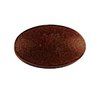 | Active Ingredient: Phenazopyridine Pyridium is used for relieving pain, burning, urgency, frequent urination, and discomfort caused by irritation of the lower urinary tract. Other names for this medication: Baridium, Cistalgina, Eridium, Fenazopiridina, Geridium, Nazamit, Nefrecil, Nordox, Phenazo, Phenazodine, Phenazopyridin, Phénazopyridine, Phenazopyridinum, Pirimir, Prodium, Pyridiate, Re-azo, Sedural, Urodine, Uroflam, Urogesic, Uropirid, Uropyrin, Uropyrine, Viridium Show all |
| Package | Per Pill | Price | Savings | Bonus | Order |
|---|---|---|---|---|---|
| 200mg × 30 pills | $1.17 | $35.11 | + Cialis | Buy now | |
| 200mg × 60 pills | $0.98 | $58.73 | $11.49 | + Levitra | Buy now |
| 200mg × 90 pills | $0.92 | $82.35 | $22.98 | + Viagra | Buy now |
| 200mg × 120 pills | $0.88 | $105.97 | $34.47 | + Cialis | Buy now |
| 200mg × 180 pills | $0.85 | $153.22 | $57.46 | + Levitra | Buy now |
| 200mg × 270 pills | $0.83 | $224.08 | $91.93 | + Viagra | Buy now |
| 200mg × 360 pills | $0.82 | $294.94 | $126.4 | + Cialis | Buy now |
INDICATIONS
Pyridium is a urinary tract analgesic. Pyridium is indicated for the symptomatic relief of pain, burning, urgency, frequency and other discomforts arising from irritation of the lower urinary tract mucosa caused by infection, trauma, surgery, endoscopic procedures, or the passage of sounds or catheters.
INSTRUCTIONS
Use Pyridium as directed by your doctor.
- Take Pyridium by mouth after meals.
- Taking Pyridium at the same time(s) each day will help you remember to take it.
- If you miss a dose of Pyridium, take it as soon as possible. If it is almost time for your next dose, skip the missed dose and go back to your regular dosing schedule. Do not take 2 doses at once.
Ask your health care provider any questions you may have about how to use Pyridium.
STORAGE
Store Pyridium at room temperature, between 68 and 77 degrees F (20 and 25 degrees C), in a tightly closed container. Store away from heat, moisture, and light. Do not store in the bathroom. Keep Pyridium out of the reach of children and away from pets.
MORE INFO:
Active Ingredient: Phenazopyridine HCl.
Do NOT use Pyridium if:
- you are allergic to any ingredient in Pyridium
- you have decreased kidney function.
Contact your doctor or health care provider right away if any of these apply to you.
Some medical conditions may interact with Pyridium. Tell your doctor or pharmacist if you have any medical conditions, especially if any of the following apply to you:
- if you are pregnant, planning to become pregnant, or are breast-feeding
- if you are taking any prescription or nonprescription medicine, herbal preparation, or dietary supplement
- if you have allergies to medicines, foods, or other substances
- if you have a history of certain blood problems (eg, hemolysis)
- if you have an enzyme deficiency called glucose-6-phosphate dehydrogenase (G-6-PD) deficiency or a family history of this deficiency.
Some medicines may interact with Pyridium. However, no specific interactions with Pyridium are known at this time.
Important safety information:
- Do NOT take more than the recommended dose or use for longer than 2 days without checking with your doctor.
- Do not use Pyridium for future urinary tract problems without first checking with your doctor.
- Pyridium may change the color of your urine to orange or red. It may also stain fabric. This is normal and not a cause for concern.
- Do not wear soft contact lenses while taking Pyridium; permanent staining of the lenses may occur.
- Pyridium may interfere with certain lab tests including urinalysis. Be sure your doctor and lab personnel know you are taking Pyridium.
- Use Pyridium with caution in the elderly; they may be more sensitive to its effects.
- Pregnancy and breast-feeding: If you become pregnant, contact your doctor. You will need to discuss the benefits and risks of using Pyridium while you are pregnant. It is not known if Pyridium is found in breast milk. If you are or will be breast-feeding while you use Pyridium, check with your doctor. Discuss any possible risks to your baby.
All medicines may cause side effects, but many people have no, or minor, side effects.
No common side effects have been reported with Pyridium.
Seek medical attention right away if any of these severe side effects occur:
Severe allergic reactions (rash; hives; itching; difficulty breathing; tightness in the chest; swelling of the mouth, face, lips, or tongue); blue or purple skin color; decreased urination; loss of appetite; unusual fatigue; vomiting; weight loss; yellowing of the skin or eyes.
This is not a complete list of all side effects that may occur. If you have questions about side effects, contact your health care provider.